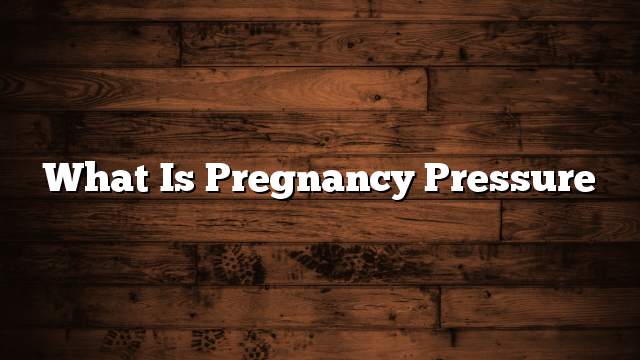blood pressure
Blood pressure is the blood pressure of the walls of the blood vessels. The heart pumps blood into blood vessels that carry blood throughout the body. High blood pressure means that the pressure in the arteries is higher than normal.
Pregnancy pressure is a disease that affects pregnant women specifically during pregnancy, due to several factors, usually appears after 20 weeks of pregnancy, and is known as high blood pressure caused by pregnancy.
Blood pressure reading is approximately 140/90 or higher, by measuring the variable blood pressure in the arteries, and is divided into two variables: systolic pressure, low pressure (diastolic pressure) or diastolic pressure. Measuring the extent of hypertension is mild if the reading is between 140-149 / 90-99 mm Hg, and averaged if the reading ranged between 150-159 / 100-109 mm Hg, and severe if reading 1160/110 mmHg.
Pregnancy pressure
Pregnant women are more likely to get preeclampsia during pregnancy, delivery, or shortly after birth, and high blood pressure during pregnancy increases the risk of multiple complications, including limiting intrauterine growth, early delivery, and placenta .
Pregnant women are more likely to contract pregnancy if they are over 40 years of age. If there is a medical history within the family (previous infections between their family with high blood pressure during pregnancy or preeclampsia), a pregnant woman with chronic renal failure or diabetes , A deficiency or an increase in weight, an immune system defect, or twins or triplets at risk of pregnancy pressure.
Symptoms and diagnosis of pregnancy pressure
Symptoms of pregnancy stress include headache, visual problems such as blurred vision, dizziness, excessive vomiting, nausea, shortness of breath, and sudden swelling of the face, hands or feet. Women who have pregnancy pressure are more likely to develop high blood pressure, cardiovascular disease, and stroke with age.
Pregnancy pressure is diagnosed by several tests, including blood and urine tests, as well as ultrasound.
Pregnancy pressure is treated by appropriate diet, drinking sufficient fluids, and the obligation to take certain medications prescribed by the doctor to the patient, as well as exercise appropriate to the health of the pregnant woman.
